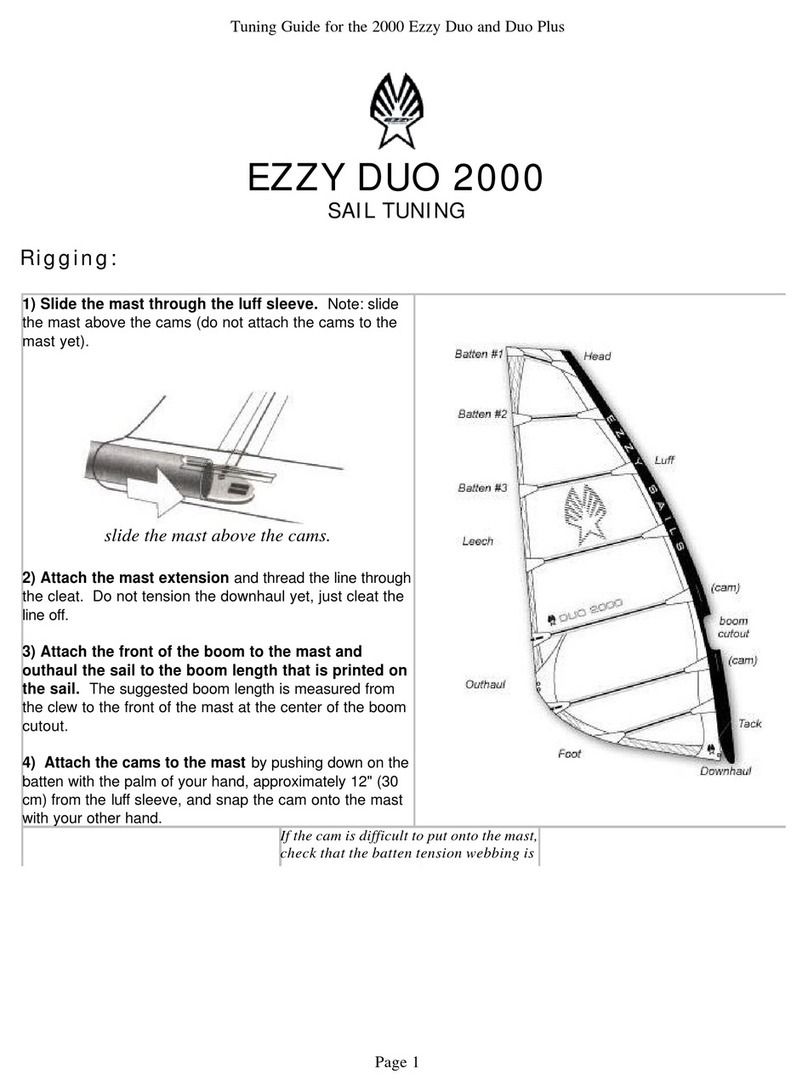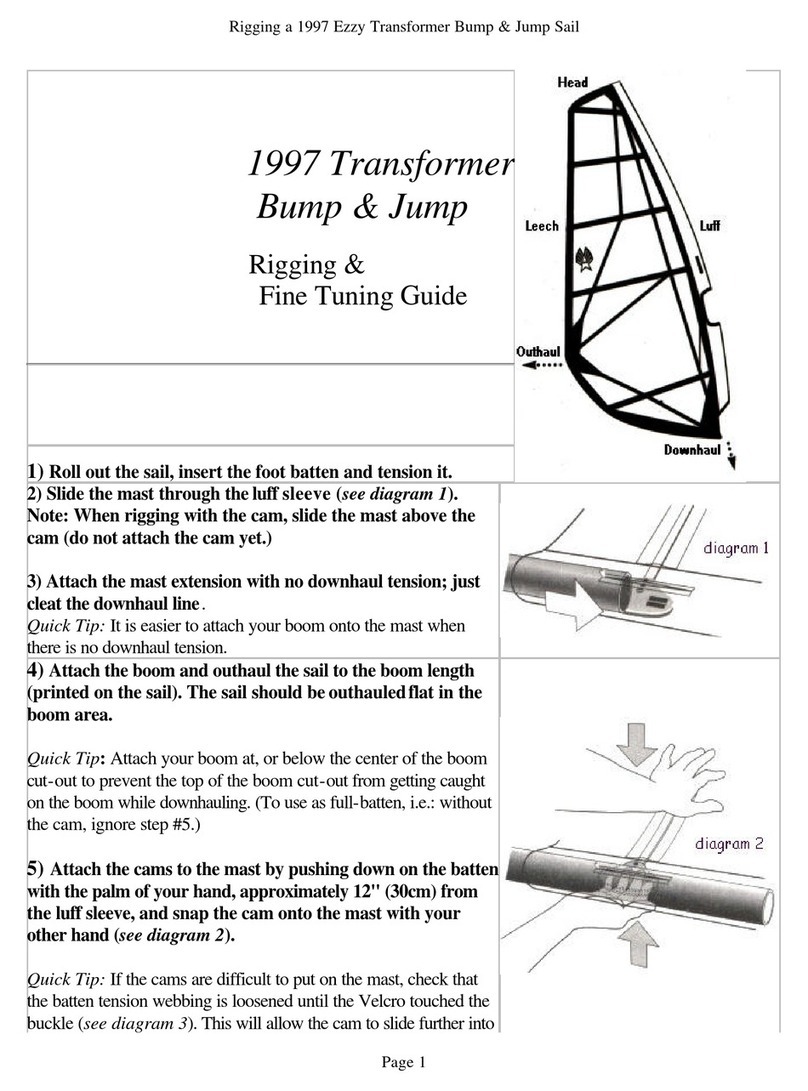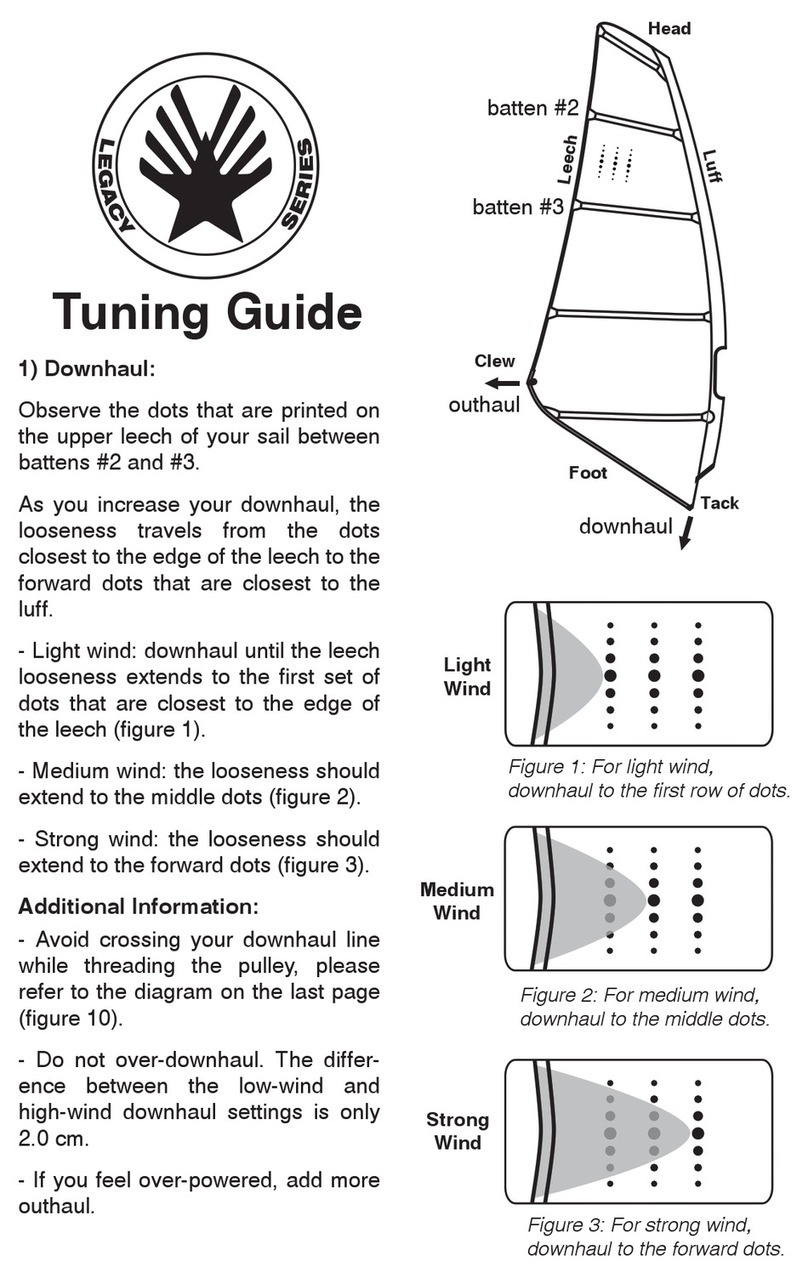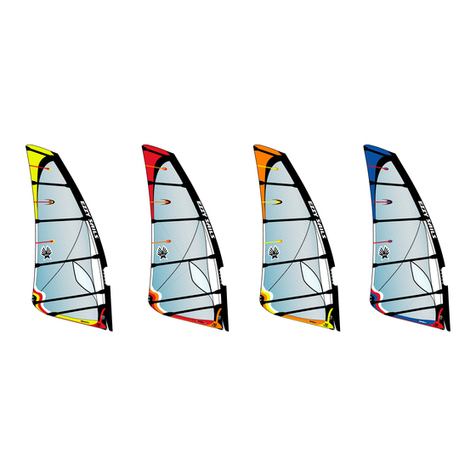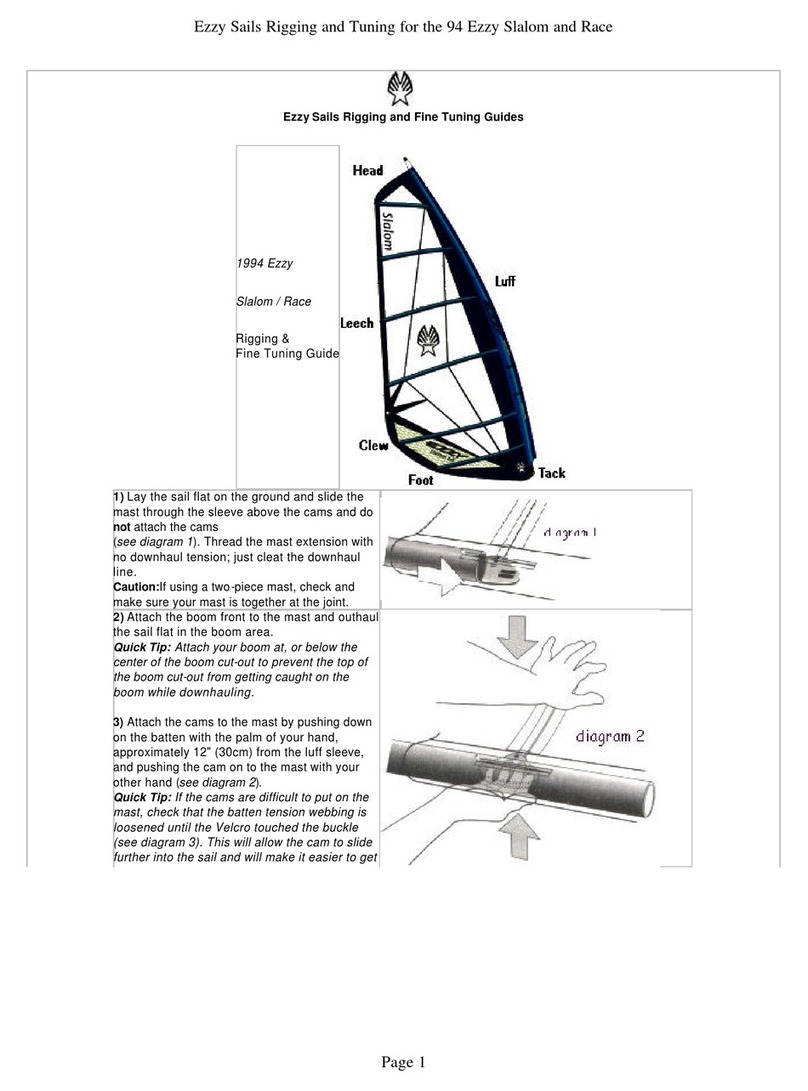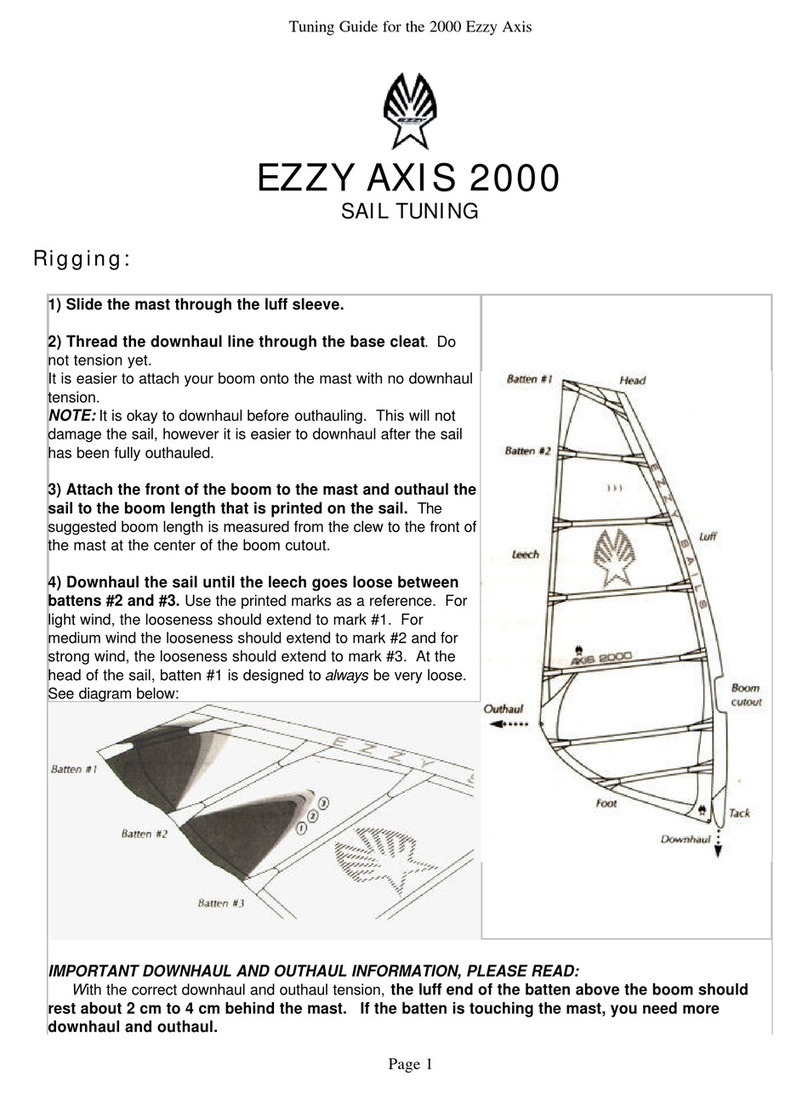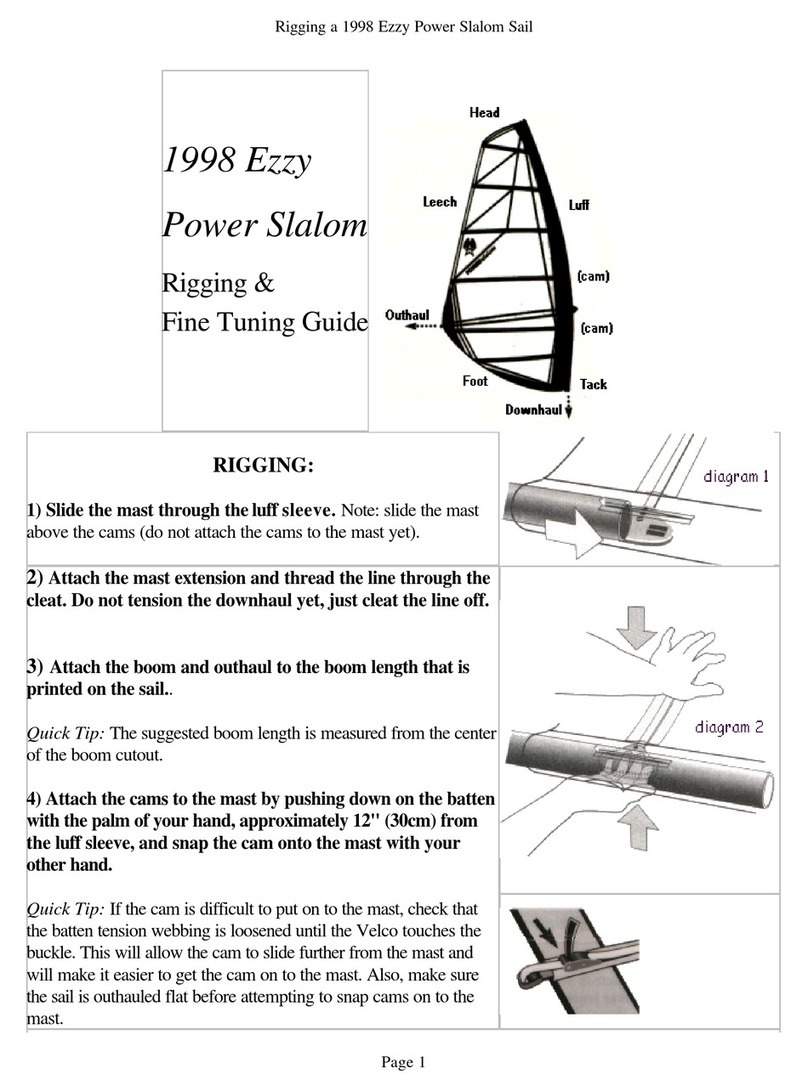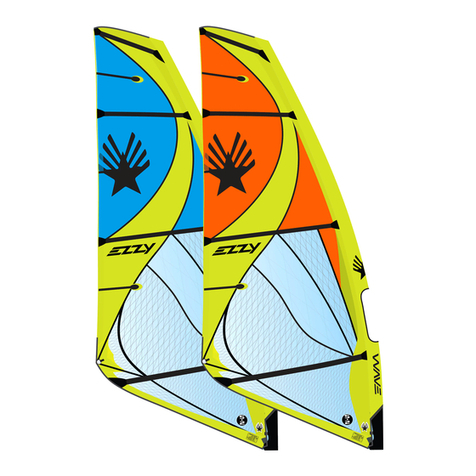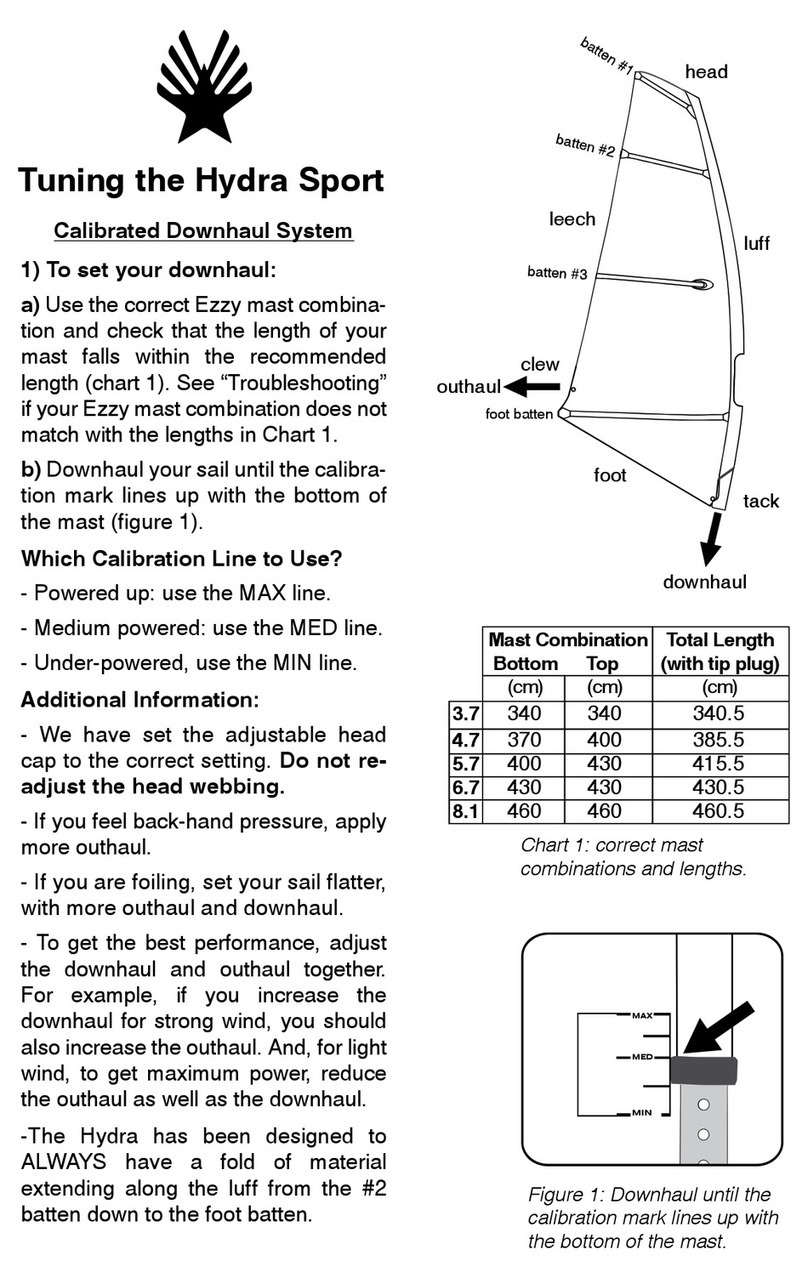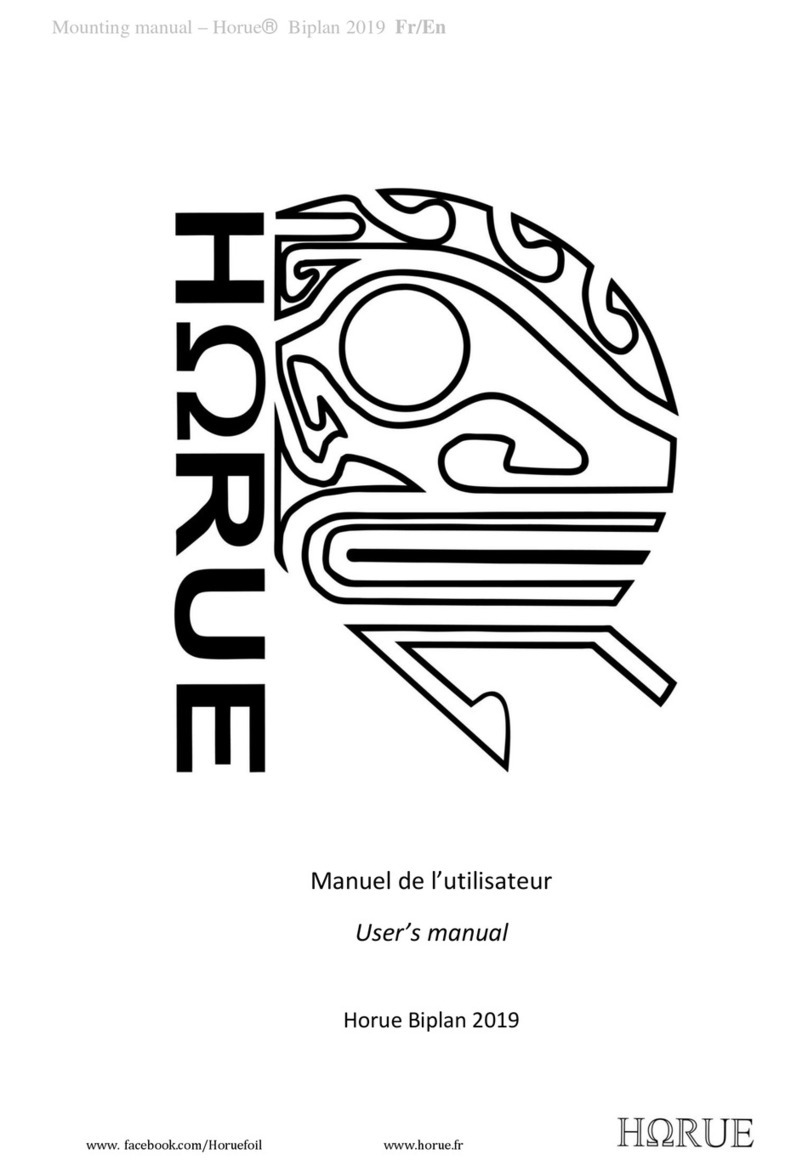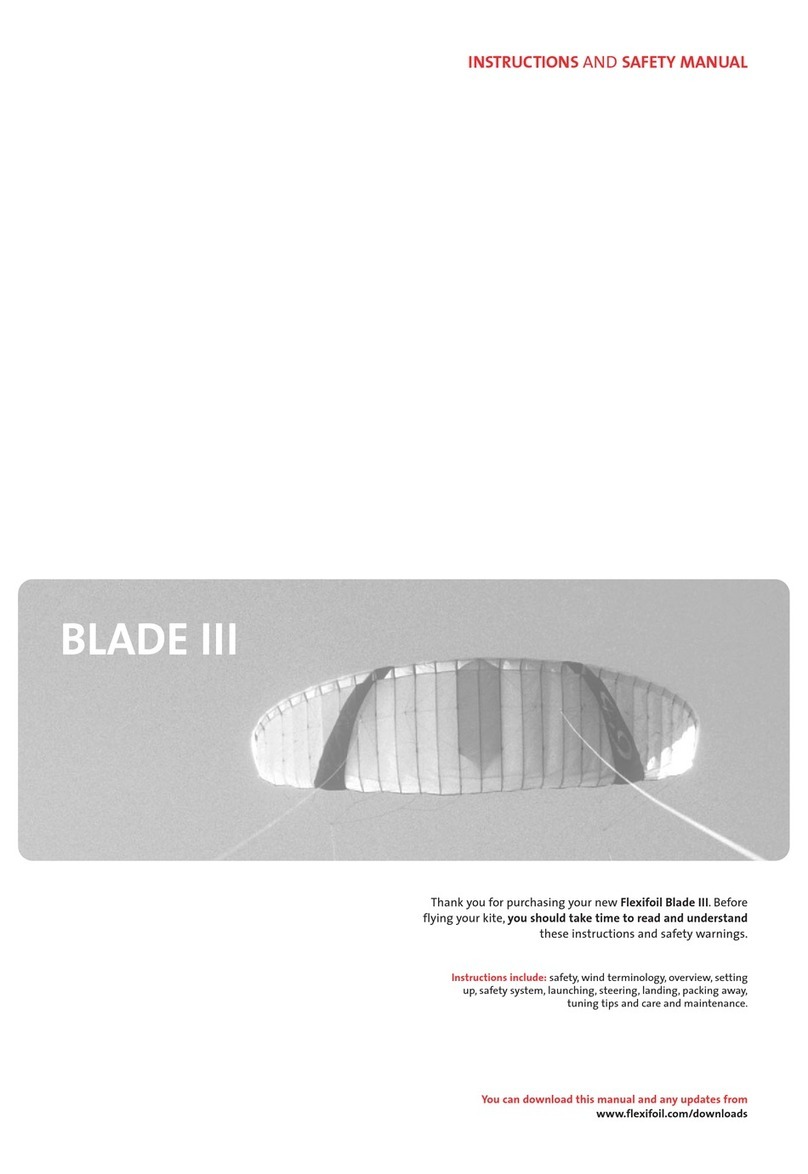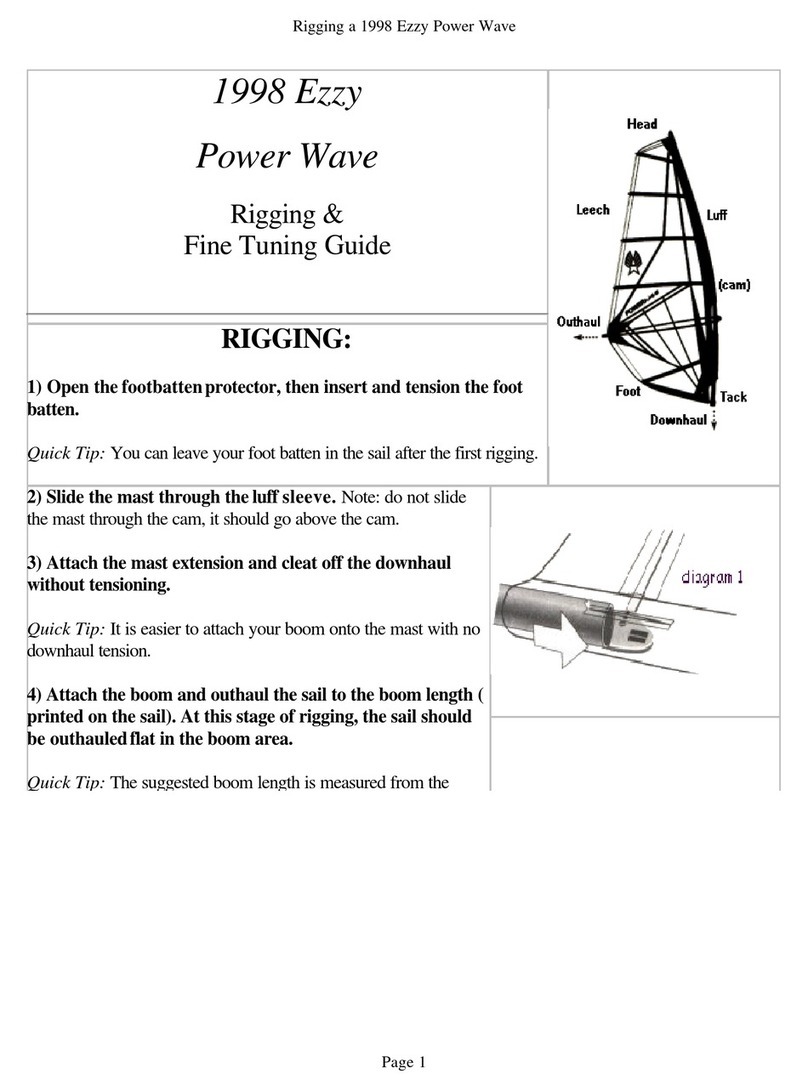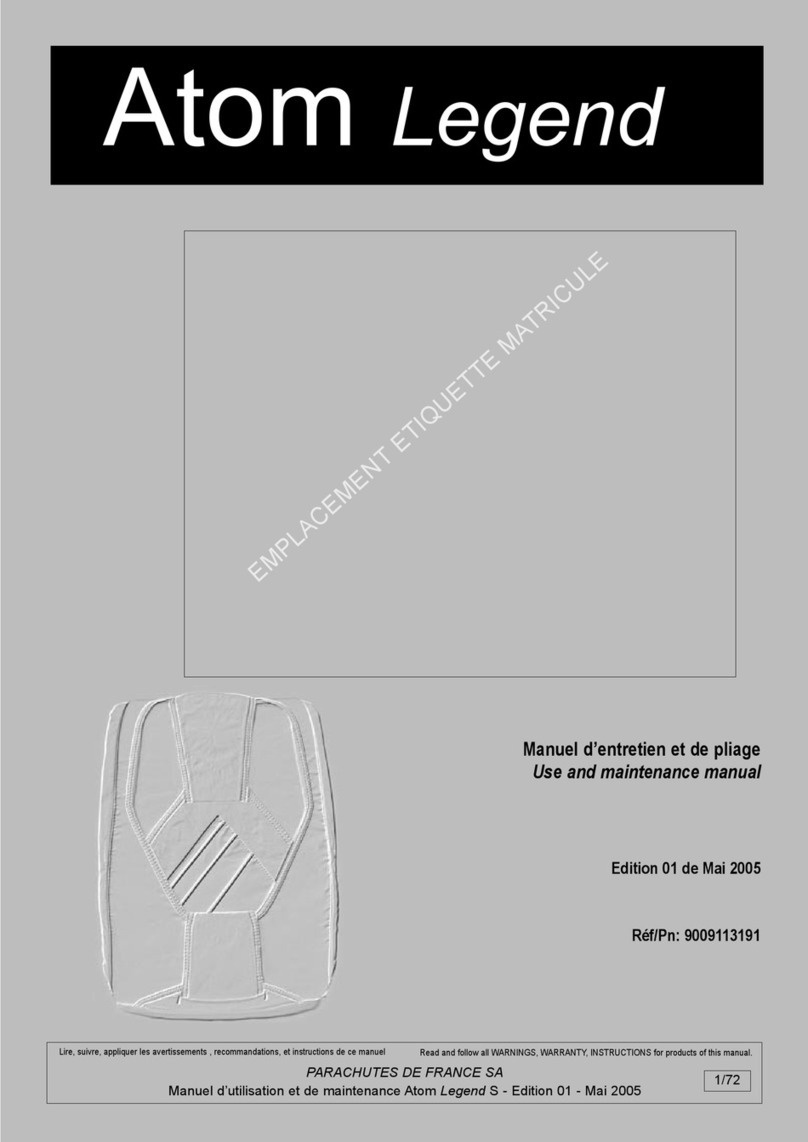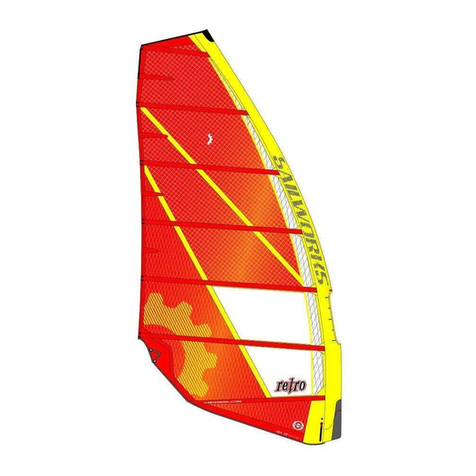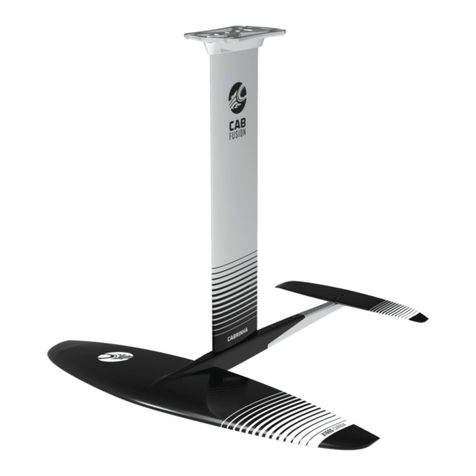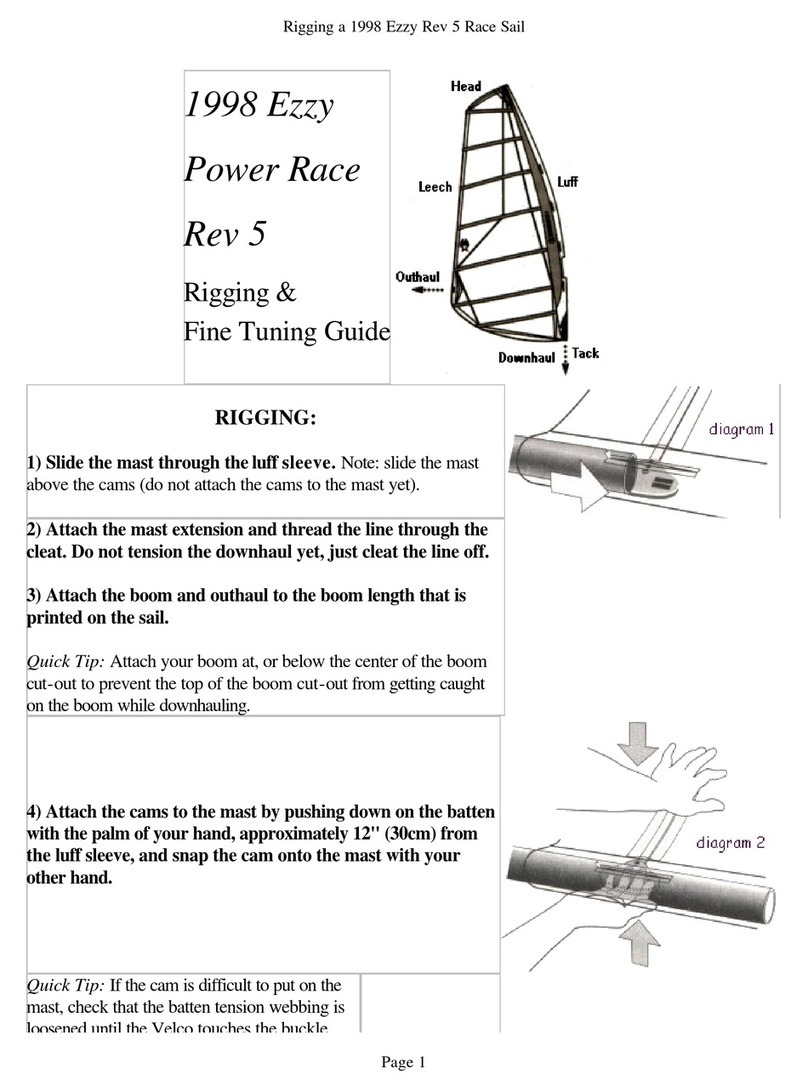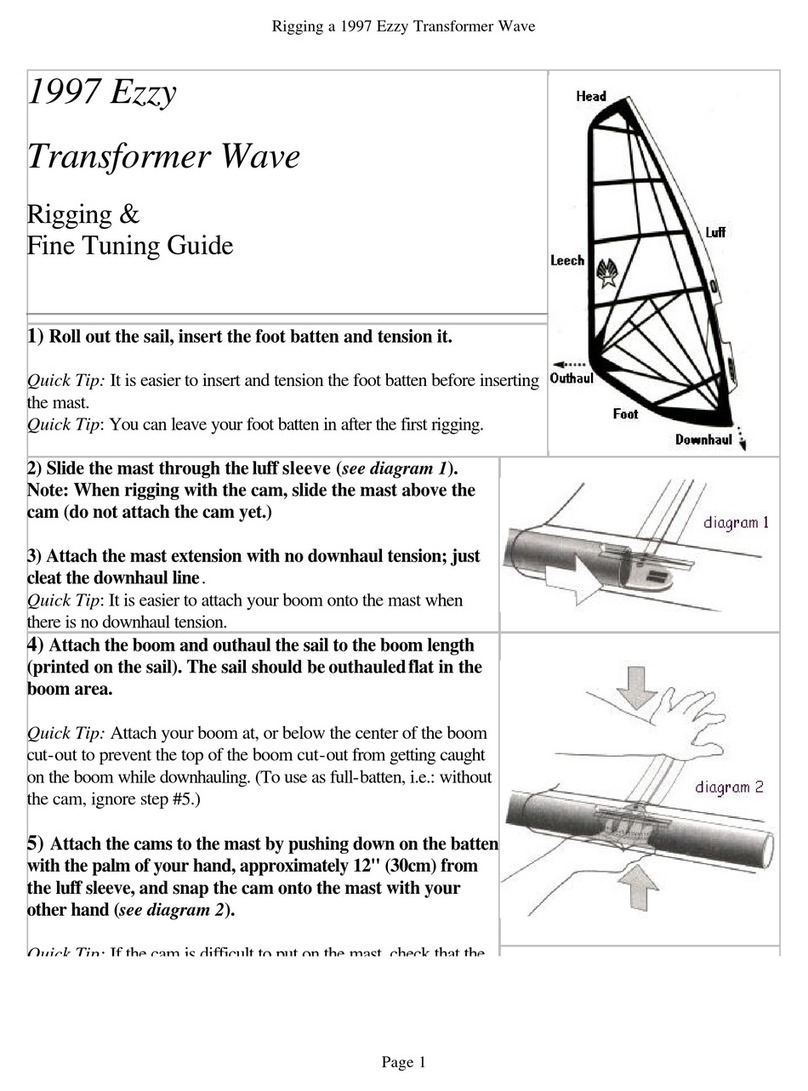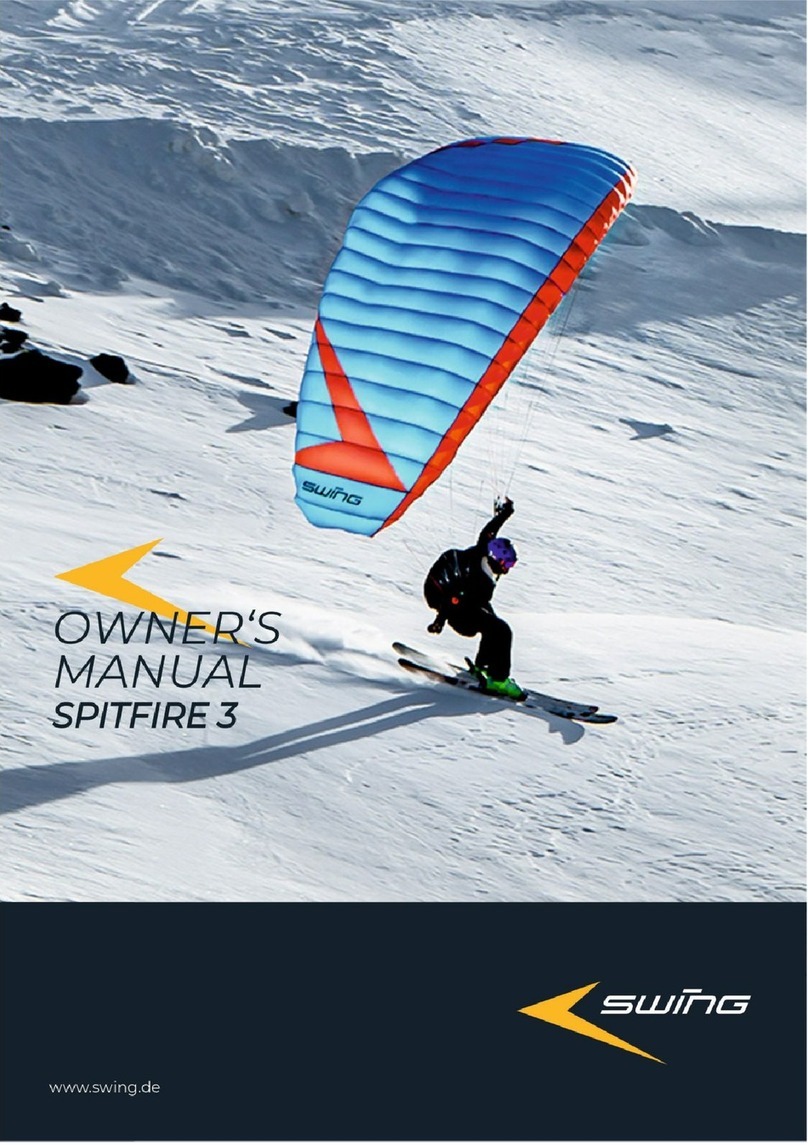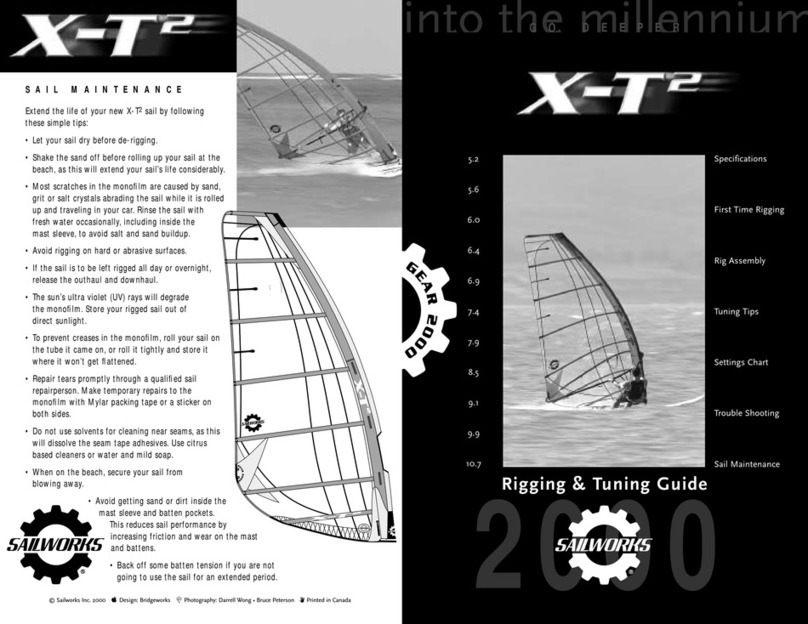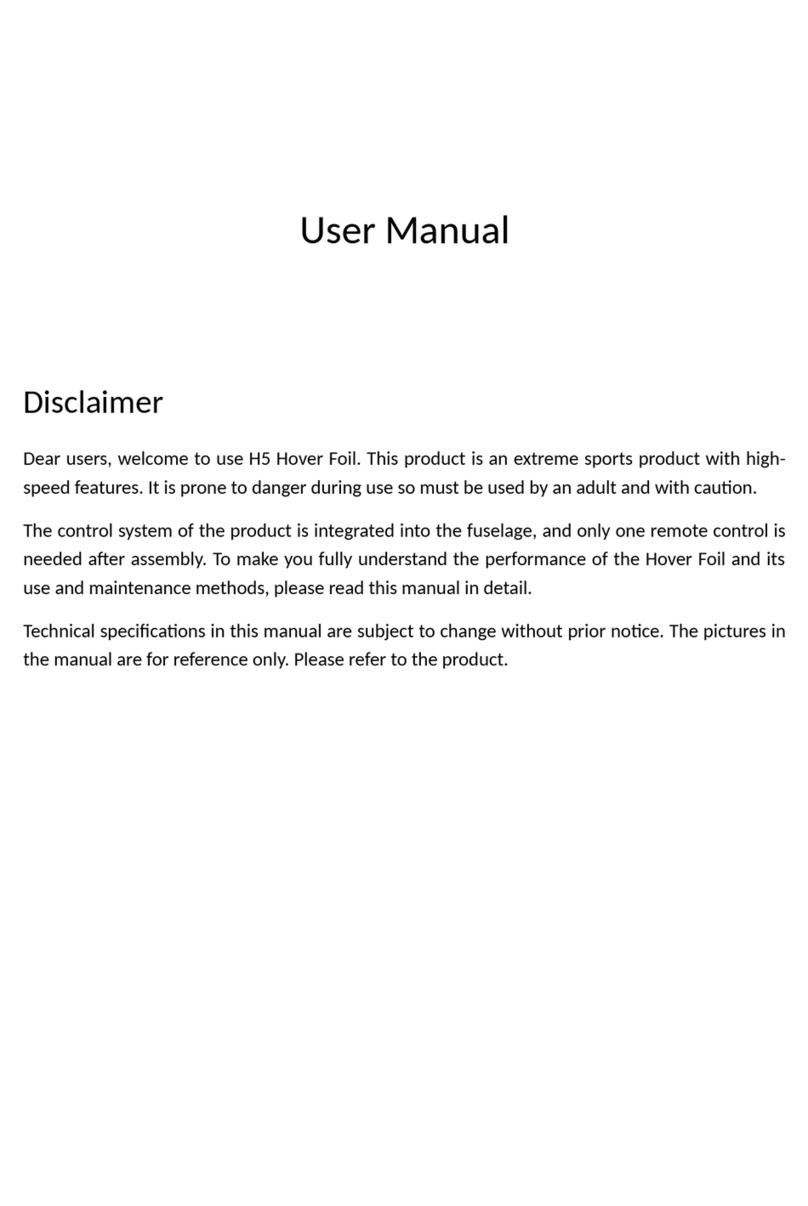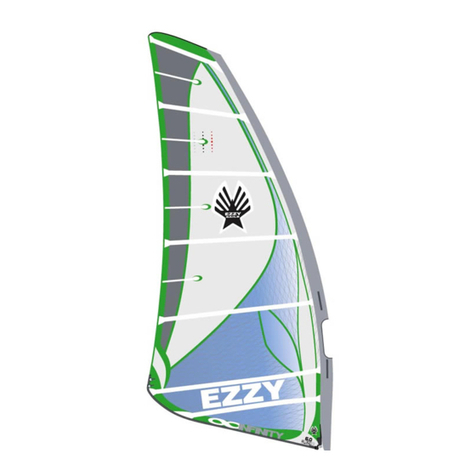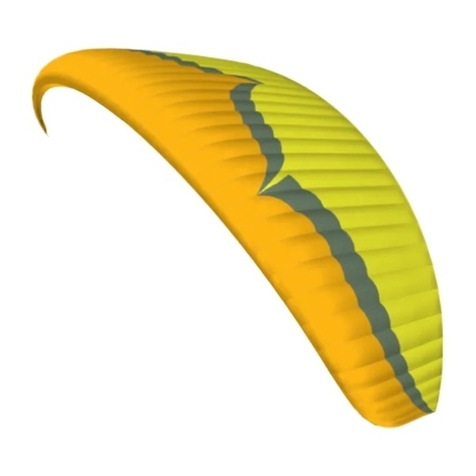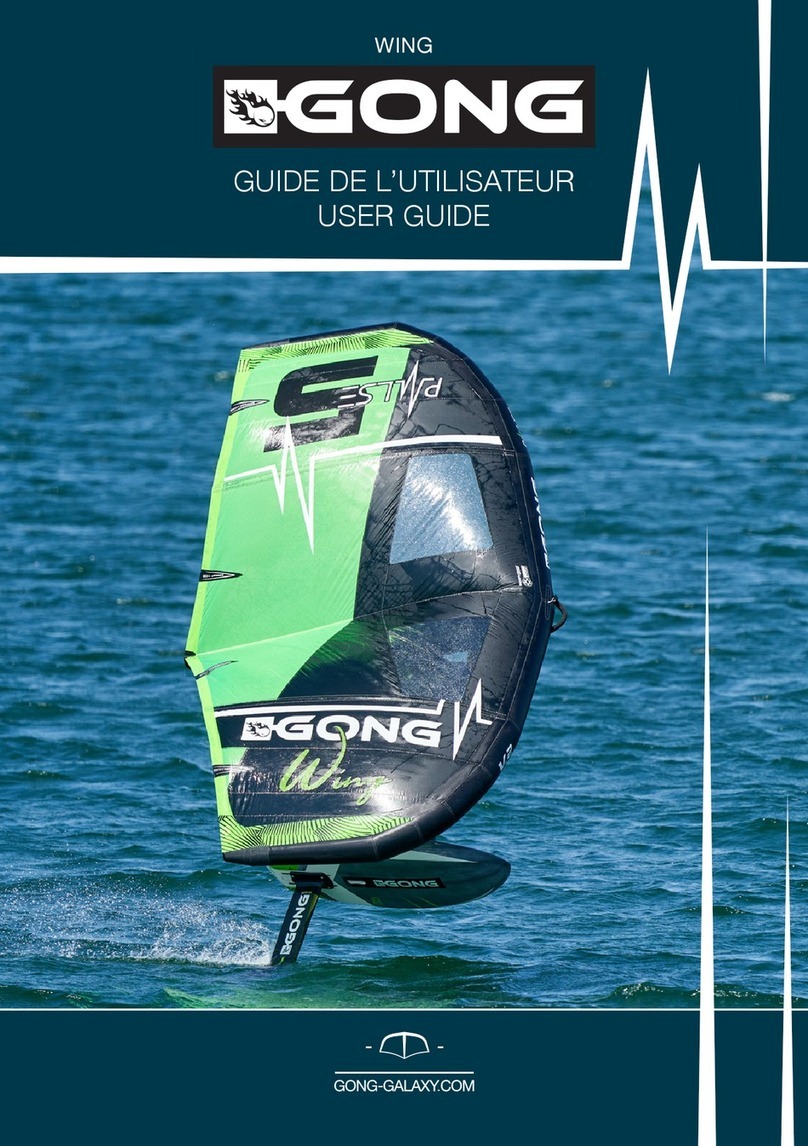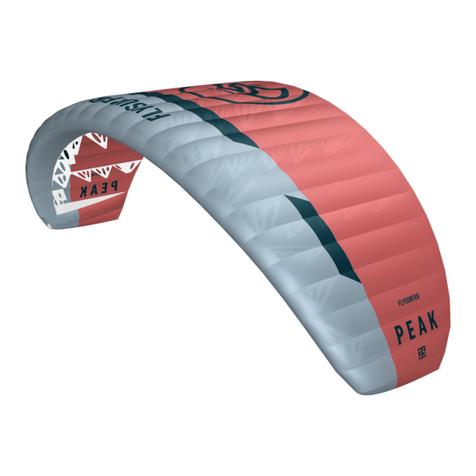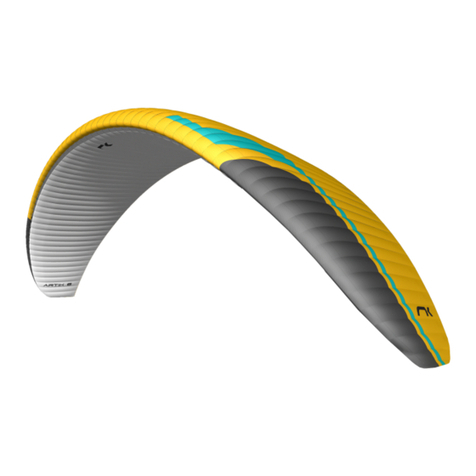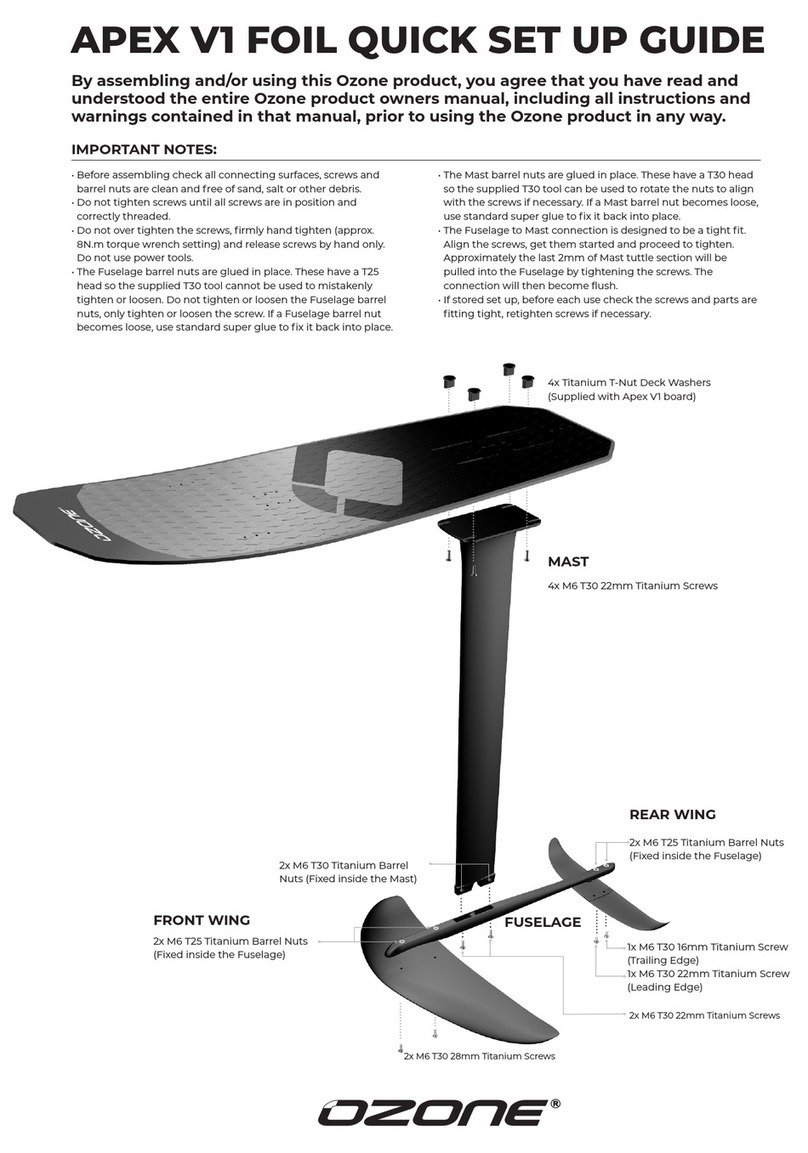
Rigging a 1998 Ezzy Bump & Jump Sail
If the cam is difficult to put on the mast, check that the
batten tension webbing is loosened until the Velco touches the
buckle. This will allow the cam to slide further from the mast and
will make it easier to get the cam on to the mast. Also, make sure
the sail is outhauled flat before attempting to snap the cam onto the
mast.
5) Downhaul the sail until the leech goes loose between
batten #1 and #2.
A good way to gauge the correct downhaul is to
observe the head leech area between battens #1 and #2. For high
wind sailing, the looseness should extend to the backseam on the
leech panel. For light wind sailing, the looseness will end about
30cm (12") behind the backseam.
Quick Tip: The amount of downhaul tension will vary for different
wind conditions. A high-wind setting requires more downhaul
tension to loosen the leech and give more twist, increasing your top-
end speed. Then for lighter wind, the sail will perform better with
less downhaul. This gives the sail a tighter leech and better low-end
power, which you will need to get on a plane quicker and be carried
through lulls faster.
Quick Tip: Always keep your base extension at its shortest
possible setting. If there is not enough space for downhauling and
you have mast extending from the top, use the adjustable top to
raise the sail up on the mast rather than extend your base.
6) Now, tension all of the battens, starting at the batten
above the boom, by pulling on the batten strap while pushing
the palm of your other hand against the batten end-cap.
Tension all battens until the vertical wrinkles running
through the pockets disappear.
Quick Tip: It is possible to over-
tension the cam batten, which will
cause the cam not to rotate. A quick check of this can be done by
holding the sail up on land and rotating the cam by pumping the
sail. The cam should rotate smoothly; if it doesn't, decrease the
batten tension.
Quick Tip: The foot batten can be tensioned without opening the
foot batten protector by placing one hand on the mast while pulling
the batten tensioner strap.
Page 2

